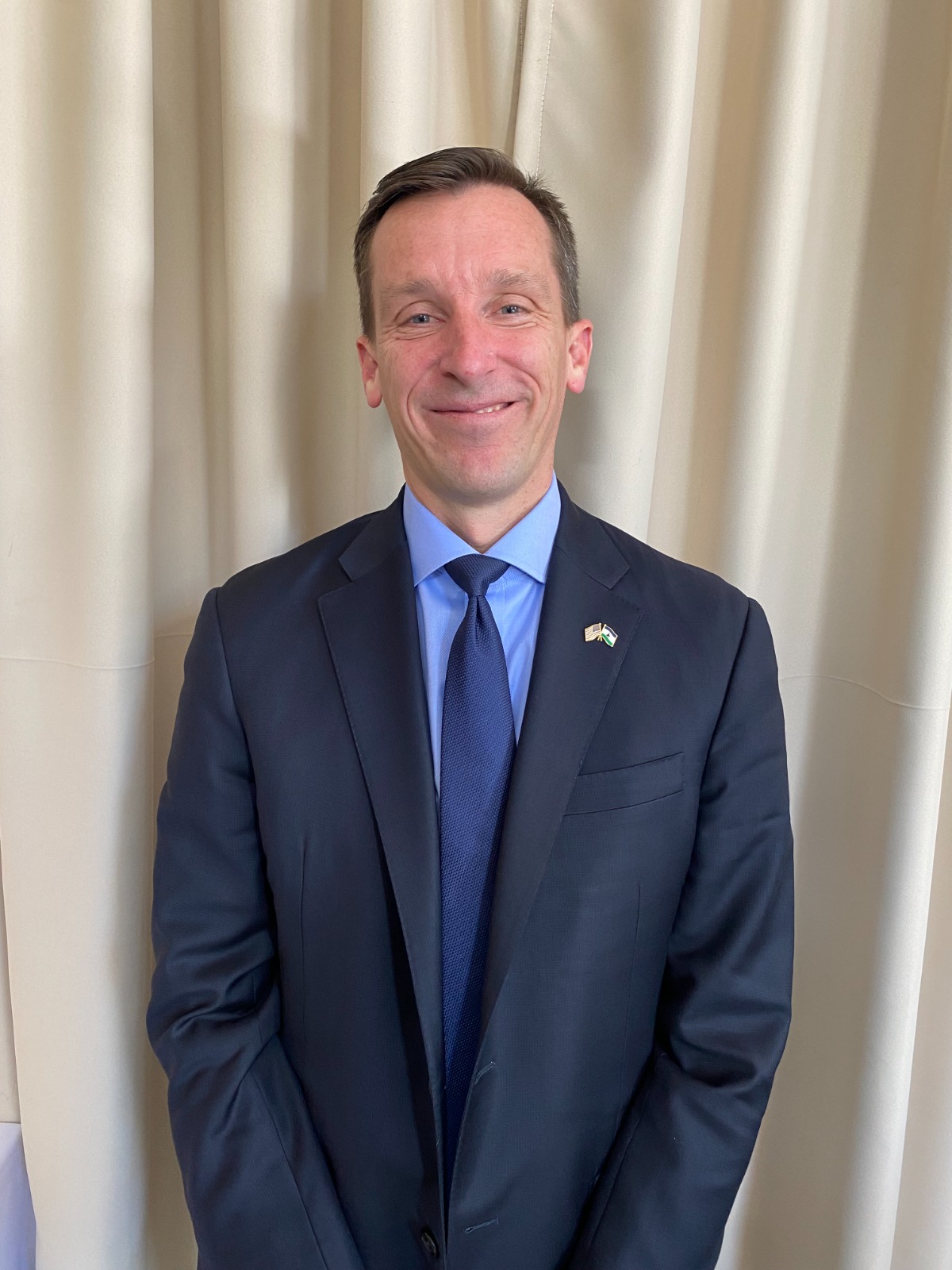Government must demonstrate commitment to MCC’s eligibility criteria
MASERU, Lesotho – Lesotho has until the end of March to enact requisite legislation to demonstrate its commitment to the second compact of the Millenium Challenge Corporation (MCC). MCC Vice President, General Councel and Corporate Secretary, Cameron Alford (https://www.mcc.gov/about/profile/bio-alford-cameron/) was Maseru last week from the United States for a series of meetings with stakeholders ahead of the Entry into Force (EIF) of the MCC Compact. Alford spoke to Africa Media 24 Managing Editor, Silence Charumbira this week and below are the excepts of the interview.
SC: Are you happy with the groundwork on the second compact so far?
MCC happy with Lesotho government
CA: The Millennium Challenge Corporation is proud of its partnership with the Government of Lesotho through our $350 million Health and Horticulture compact. We are grateful for the government’s efforts and collaboration on the compact thus far. This year, we celebrate MCC’s 20th anniversary and Lesotho’s bicentennial year, and it is timely that Lesotho’s Health and Horticulture compact should enter into force this year. The government (of Lesotho) has been holding regular meetings of its Cabinet subcommittee on the compact to track progress. Now, the entity that will implement the compact, MCA-Lesotho II, is established, has moved into its offices, and hired upwards of 20 new staff—this is a great starting point for compact implementation.
MCC expects all partners to demonstrate ongoing commitment to eligibility criteria
SC: Lesotho continues to battle high levels of crimes like GBV on one end and a rickety justice delivery system that is saddled with a backlog of thousands of cases. What is the MCC’s feeling on the slow progress and to an extent, stagnation in this regard?
CA: MCC expects all partner countries, including Lesotho, to demonstrate an ongoing commitment to MCC’s eligibility criteria throughout the life of our partnership. These criteria include the protection of human rights and fundamental freedoms, and adherence to the rule of law. This also includes resolving cases and political disagreements through established legal mechanisms and inclusive political processes. If a country fails to demonstrate such a commitment, there can be consequences for its MCC partnership.

SC: You are in Lesotho for the Entry into Force of the compact. Tell us what this entails for Lesotho?
CA: Let me first recall that the Government of Lesotho enacted several bills in late 2022 in support of the compact – the Counter Domestic Violence Bill and the Laws of Lerotholi (Amendment).
More from Africa News 24
This was my second visit to Lesotho, and it was a great opportunity to discuss the current status of compact development and the requirements for the compact to launch – what is referred to as “Entry into Force.” During this visit, I met with officials of the government of Lesotho to urge (the) enactment of the three laws needed to start implementation of the $350 million Health and Horticulture programme. I was also able to meet with the talented team at MCA-Lesotho II who have been championing progress on the three laws and will be responsible for implementation of the compact once it enters into force. Entry into force is the last step before MCA-Lesotho II can begin implementation of the Lesotho Health and Horticulture compact which focuses on strengthening health systems, development of the private sector, and the establishment of four irrigated commercial horticulture schemes. Each project also has specific interventions to promote the economic empowerment of women and youth in these areas.
SC: What are the processes involved in the EIF?
CA: Right now, we aim to launch the compact by March 30, 2024. In order to do so, the government of Lesotho must finalise the legislative process of three laws—the inheritance reforms (“Administration of Estates and Inheritance Bill”), the Labour Law, and the Occupational Health and Safety Laws. Enactment of these laws will set the foundation for an inclusive compact that improves the lives of all Basotho. A delay in enactment of these laws introduces significant risk to the compact, its implementation and its sustainability.

SC: When Lesotho was awarded the second compact, it was a great of confidence in the Lesotho government’s willingness and ability to correct several wrongs that stood as impediments against the eventual awarding of the compact. Do you still have that same confidence?
CA: MCC has been encouraged by the progress the Government of Lesotho has made in recent years to address issues such as trafficking in persons, and we look forward to further progress as our partnership continues, including enactment of the three laws needed to begin compact implementation.
SC: As late as last November, there were concerns that Lesotho had not eliminated “all bottlenecks in accessing crucial development aid under the Millennium Challenge Corporation (MCC) Compact II”. Among these was the failure to implement legislative reforms. Has that feeling changed now?
CA: The purpose of my trip was to communicate the importance and urgency to enact the remaining legislation needed to reach entry into force- specifically the Labor Bill, Occupational Health and Safety Bill, and inheritance reforms. Enactment of these laws will not only satisfy compact obligations but also set the foundation for an inclusive compact that improves the lives of all Basotho. A delay in enactment of these laws introduces significant risk to the compact and its implementation. I was heartened to see that they have a specific plan for ensuring these bills are passed by the deadline later this month.












